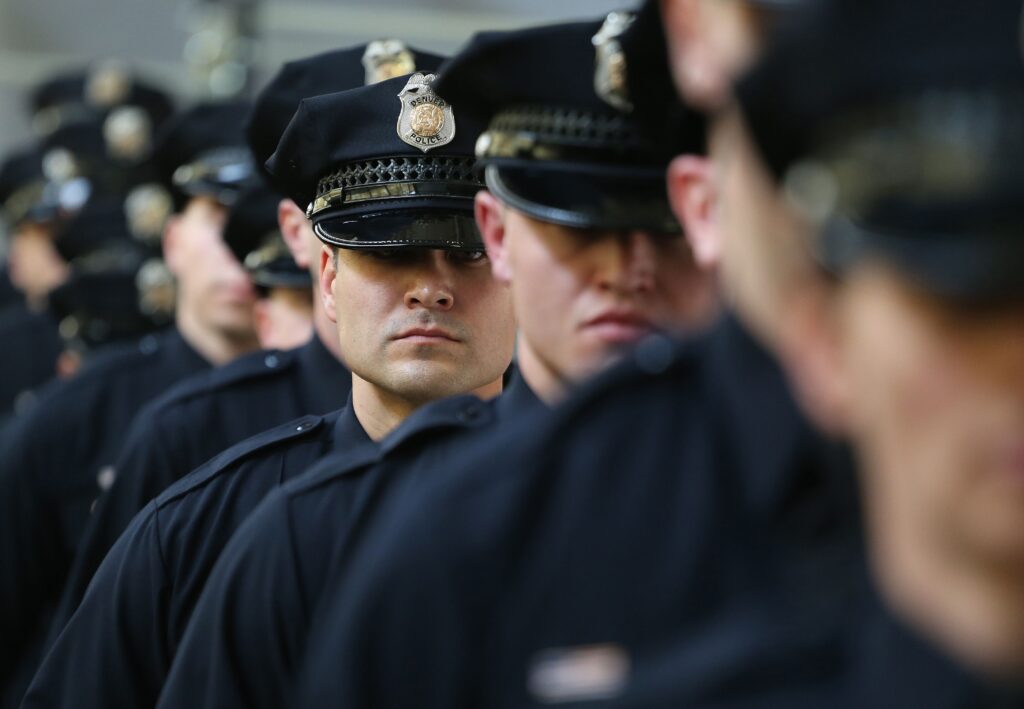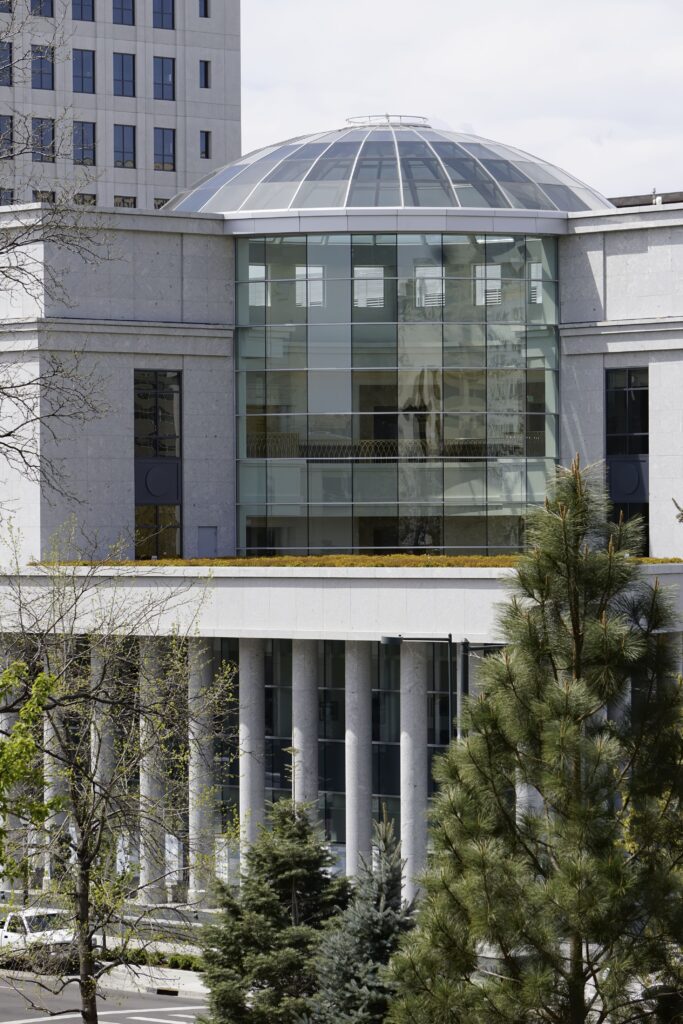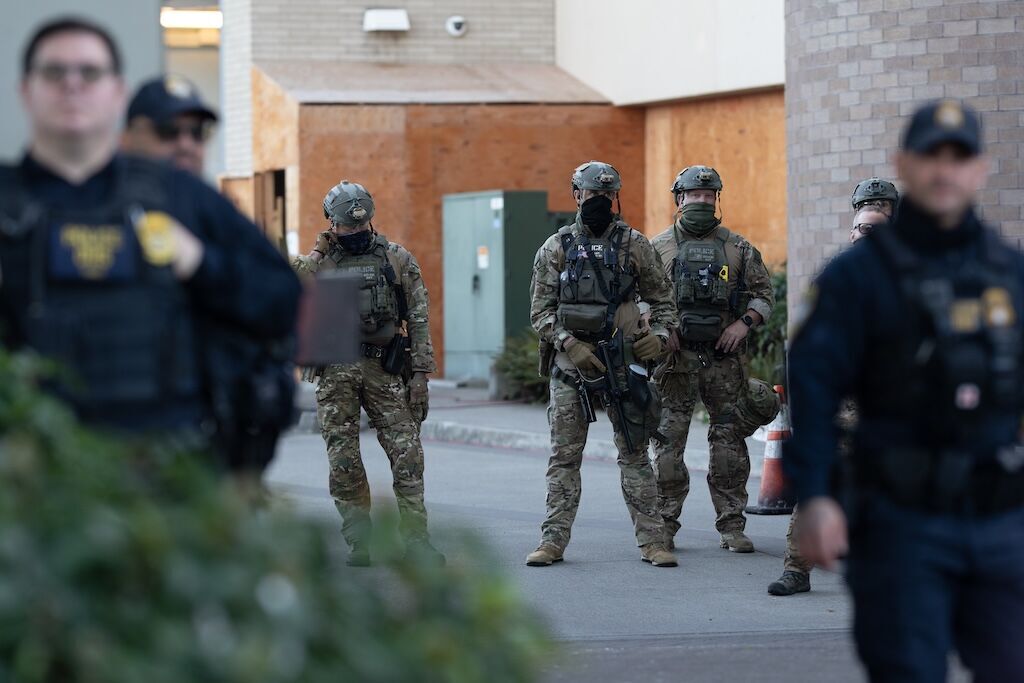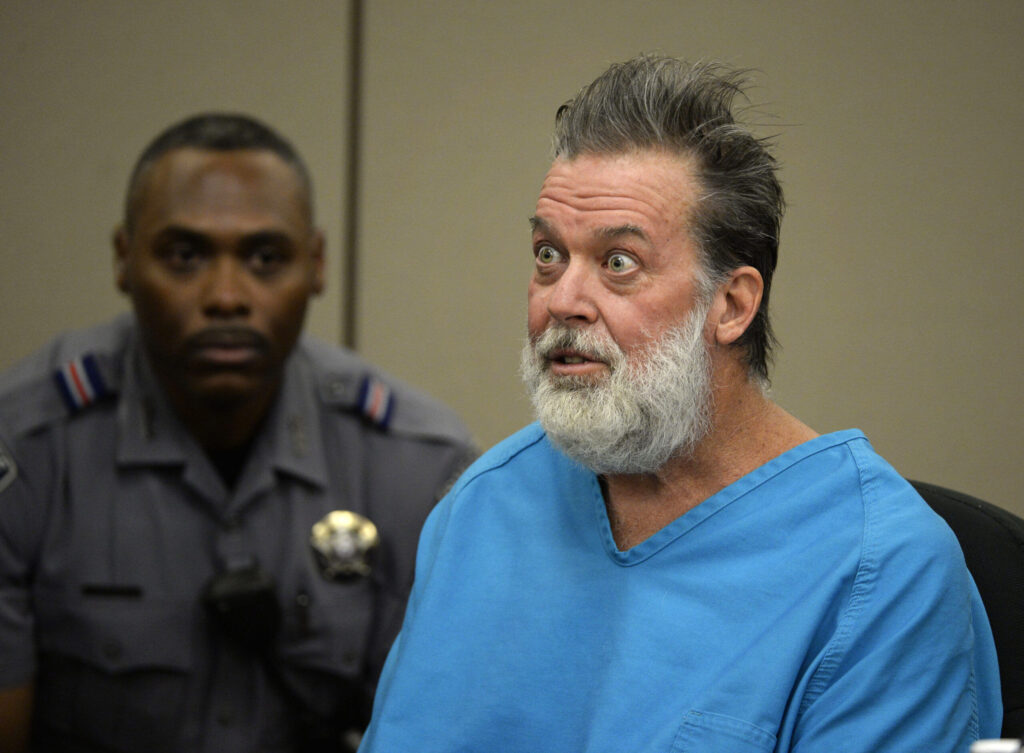Ex-Denver police chief may be sued for excessive force in 2020 protests, federal judge rules

A federal judge earlier this month allowed a single excessive force claim to proceed against Denver’s former police chief for his alleged role in directing the city’s response to racial justice protests in the summer of 2020.
At the same time that U.S. District Court Senior Judge William J. Martínez declined to dismiss the claim against ex-Chief Paul Pazen, he threw out the allegations against several other law enforcement officers, two local governments and the Jefferson County sheriff.
The lawsuit from Suzy Dennis was one of several filed in federal court following the police murder of George Floyd in Minneapolis in May 2020. International demonstrations also erupted in solidarity with the Black Lives Matter movement in America. Then-Mayor Michael Hancock imposed an overnight curfew for multiple days in the wake of violence and property damage. Officers enforced the curfew and used projectiles and tear gas to contain or disperse protesters.
Dennis alleged she was walking along Colfax Avenue during the curfew when she stopped and decided to record the non-violent protesters. Within minutes, police began using force. A projectile hit Dennis’ hand, causing serious damage to her index finger that required extensive medical treatment.
In her lawsuit, however, Dennis noted she did not know the identity of the person who shot at her. Instead, she attributed her injury to a member of the Jefferson County Regional SWAT team, consisting of law enforcement from metro area jurisdictions. She named several individual officers, the cities of Arvada and Golden, then-Jeffco Sheriff Jeff Shrader and Denver itself as defendants.
Moving to dismiss her lawsuit, the defendants observed Dennis had failed to connect any specific officer to her finger damage.
“Ms. Dennis cannot even assert that the named officers constitute the entire subset of the JCRS who could have caused her injury,” wrote the Jefferson County Attorney’s Office.
Martínez agreed in a Sept. 12 order, finding Dennis’ allegations were “woefully inadequate” and were made “without remotely explaining who did what to her.”
As for the local governments Dennis named, Martínez explained the lawsuit needed to identify how a municipality’s policies or purposeful indifference to its officers’ lack of training were behind Dennis’ injuries. However, Dennis’ allegations did not show how any of the government entities was on notice that constitutional violations were imminent, Martínez wrote.
Although Dennis’ allegations against Pazen were a “close call,” the judge did conclude Dennis had credibly claimed the chief violated her constitutional rights.
Dennis alleged Pazen had opened a “command post,” authorized projectiles to “control and suppress protesters” and publicly praised the officers’ forceful response to the protests. The Denver City Attorney’s Office disputed that Dennis had cited “any deliberate, intentional action taken by Defendant Pazen for the purpose of causing Plaintiff’s injury,” but Martínez felt otherwise.
Dennis “has plausibly alleged an affirmative link between Pazen’s personal actions and the use of force that injured her,” he wrote.
In the same order, Martínez rejected Dennis’ claim that Pazen also violated her First Amendment rights by targeting protesters because of their viewpoint. Dennis did not illustrate how Pazen’s actions injuring her were motivated by her views, Martínez concluded.
Dennis’ lawsuit will now proceed as an excessive force claim against Pazen. Arvada did not file a motion to dismiss and remains in the litigation.
Since 2020, federal judges have declined to dismiss multiple lawsuits brought against Denver and its police officers for using force against the protesters. The cases have led to millions of dollars in settlements so far, with Denver’s city council most recently approving $1 million for a group of six protesters early in September. One set of claims involving 12 protesters resulted in a $14 million jury verdict in their favor in March 2022.
Last month, the council also approved paying $4.72 million to settle claims involving hundreds of people arrested for violating the curfew.
The case is Dennis v. City and County of Denver et al.
Denver Gazette reporter Julia Cardi contributed to this report.













